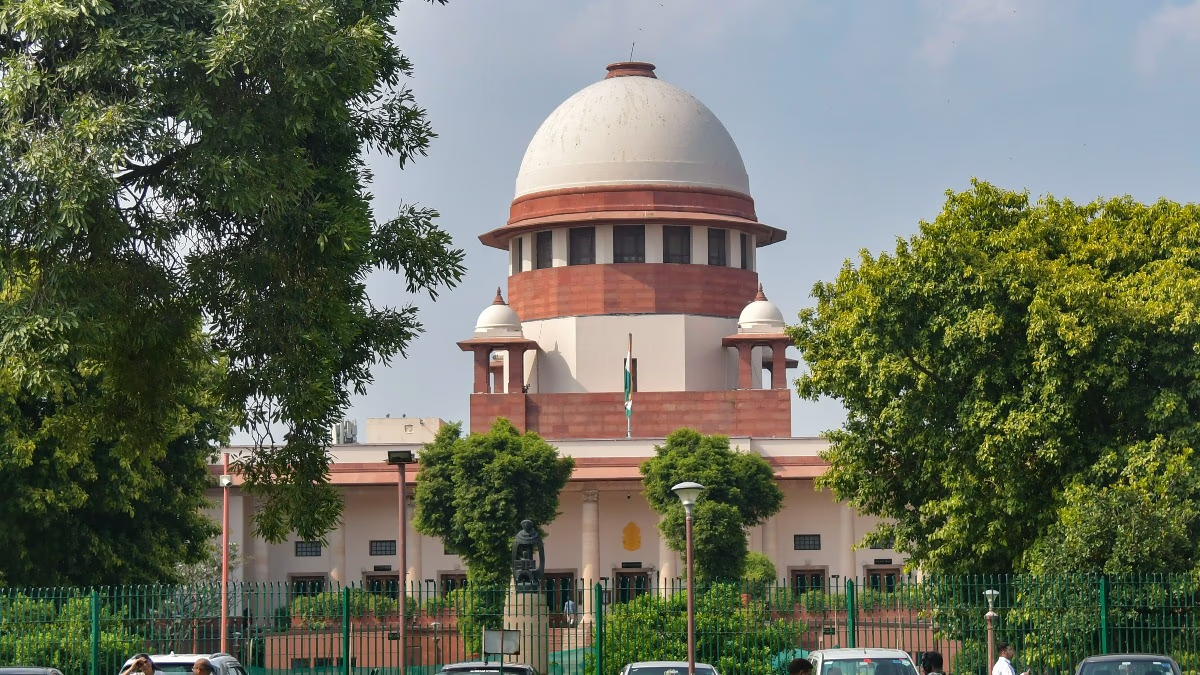The Supreme Court delivered a landmark ruling on Tuesday, reviewing the powers of the governor. During the hearing of Tamil Nadu government's petition against the governor, the apex court stated that withholding 10 bills by the governor is entirely illegal, as the governor lacks any veto power to indefinitely hold and decide on bills.
Court Establishes Timeline
The bench of Justice JB Pardiwala and Justice R Mahadevan asserted that under Article 200 of the Constitution, governors do not possess such authority. They must act with the advice and assistance of the council of ministers. While hearing the petition challenging Tamil Nadu Governor RN Ravi's actions, the court set a timeline mandating governors to decide on assembly-passed bills within the stipulated period.
The court also firmly objected to sending the bill back to the President if it is reintroduced with no substantial changes. The bench noted that such a scenario can occur only if the reintroduced bill materially differs from the original.
Obligation to Approve upon Re-Submission
In cases where the council of ministers disagrees with withholding the bill, the governor must return it with a message within three months. Alternatively, if reserved for the President's consideration, it must be dealt with within the same timeframe.
During the hearing, it was emphasized that governors must approve, withhold, or send bills to the President within a month's time once passed by the assembly. Moreover, if returned and passed again, the governor has no choice but to approve.
Work as Facilitators, Not Obstructors
The court reminded that governors take an oath under the constitution, and should not act like political entities. They should facilitate governance rather than obstruct the legislative process. The Supreme Court annulled the governor’s decision to withhold 10 bills, marking this judgment as a precedent for states with similar executive-legislature tensions.
This legal precedent extends beyond Tamil Nadu as recent actions by governors in Kerala and Punjab have also reached the Supreme Court’s corridors. Kerala's appeal in March 2024 highlighted Governor Arif Mohammed Khan sending seven bills to the President without closure.
Concerns in Kerala and Punjab Too
The Kerala government accused the governor’s decision of stalling legislative functions, which rendered the bills ineffective due to prolonged pendency. The Supreme Court reinforced that governors cannot obstruct legislation passed by the state assembly.
Echoing Kerala’s claims, the Punjab government raised issues in November 2023, with Governor Banwari Lal Purohit allegedly keeping seven bills on hold.
The Supreme Court reiterated its stand for procedural adherence, emphasizing that governors, not being elected representatives, need to comply with the council's advice, especially when holding state-operated duties.
Understanding Article 200
Article 200 of the Constitution outlines the governor's role regarding state bills. It mandates decision-making under the elected legislature's guidance. If returned, bills must be accepted upon re-passage, showcasing the governor’s duty to approve, withhold, or send them for Presidential approval accordingly.
The Supreme Court decision underscored this obligation, remarking on Tamil Nadu’s 10 pending bills which should have been approved upon their return for ratification. The judgment emphasizes that, ultimately, legislative resolutions rest with the elected assembly, and governors cannot hinder legislative progress.




